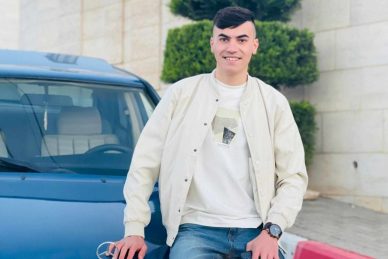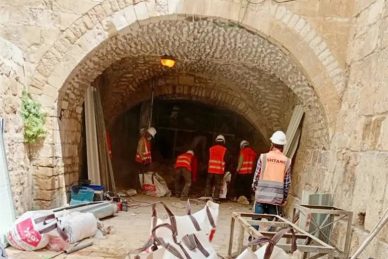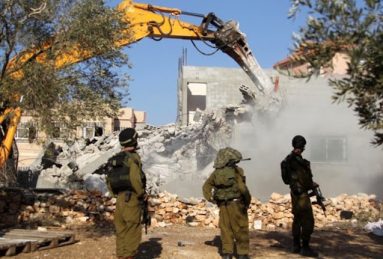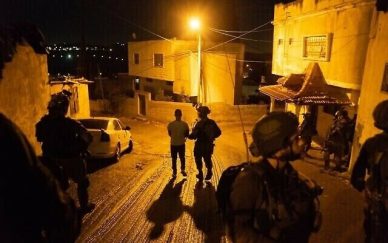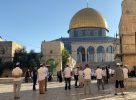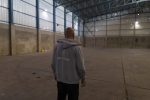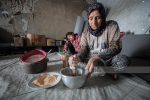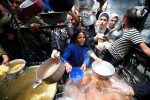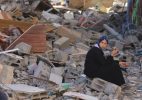A horde of fanatic Jewish settlers on Saturday attacked Palestinian children families and homes in at-Tuwani village south of al-Khalil while soldiers assaulted citizens in al-Khalil city and blocked roads leading to Azzun town east of Qalqilya.
According to Quds Press a group of settlers escorted by Israeli soldiers attacked in the afternoon today several homes in al-Tuwani village tried to take over two homes and assaulted their residents including children.
A local resident said that the settlers tried for several hours to forcibly seize one of the houses but citizens managed to fend them off pointing out that the soldiers who came with the settlers physically assaulted an elderly woman in her home.
At-Tuwani is a small Palestinian village in the southern hills of al-Khalil governorate. Many of the village’s impoverished residents live in caves because of Israel’s repeated demolition of their homes.
The village is located near the illegal Israeli settlement of Ma’on. The local residents suffer from frequent attacks by settlers and soldiers and they are deprived of using their natural resources.
In a separate incident a large number of Israeli troops in the afternoon of the same day were deployed at roads leading to Azzun town in Qalqilya north of the West Bank and closed its main entrance.
Local sources told the Palestinian Information Center (PIC) that soldiers aboard three patrol vehicles were stationed at the main entrance to Azzun particularly on the road leading to Qalqilya and closed it with a barrier.
Another military force set up a barrier on the road between Azzun and Izbat Attabib village intercepted passing citizens and checked their IDs.
In an earlier incident Israeli soldiers physically assaulted on Friday night citizens from the family of an-Natsha in the Old City of al-Khalil.
According to a PIC reporter soldiers severely beat Salah an-Natsha 42 and Falah an-Natsha 23 during their presence in front of their home in the Old City of al-Khalil.
The two citizens suffered injuries in their faces and chests and received medical care in a local hospital.

Falah an-Natsha

Salah an-Natsha


